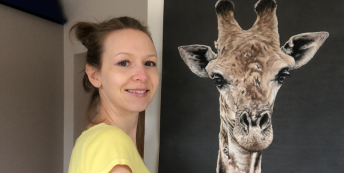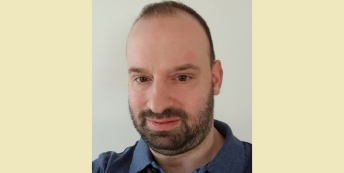“I couldn't miss the chance to fix something I could see wasn't working.”
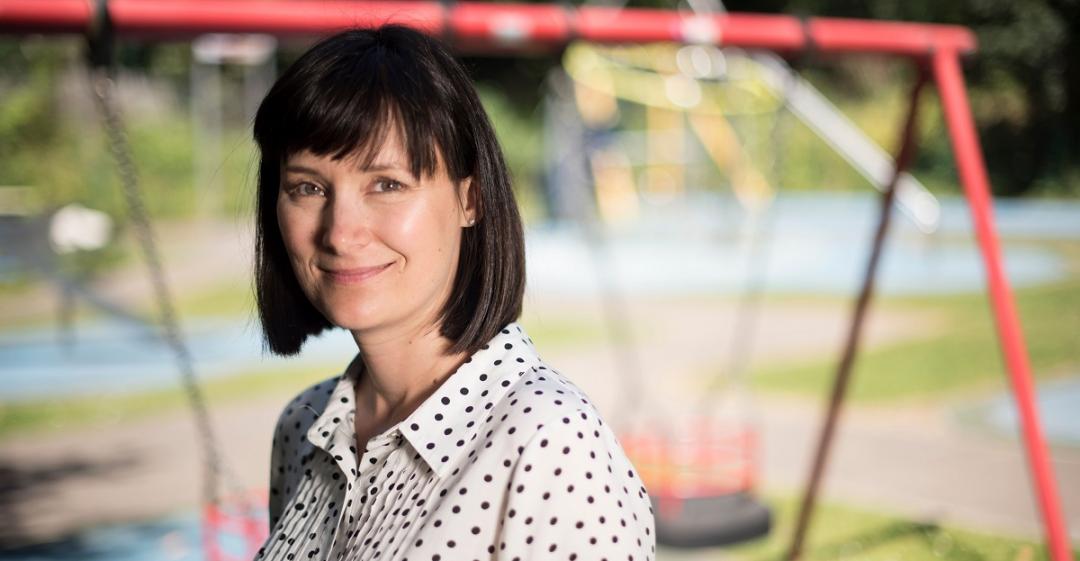
Newly Updated
What work were you doing previously?
I was a management consultant for about a decade, working for the Boston Consulting Group (BCG), a leading global consultancy.
My clients were mostly in the retail and consumer goods industries, and I worked for some of the largest retailers both in the USA and the UK.
My role as a Principal was to advise clients on all aspects of their business – from growth options to cost optimisation – and improving their internal culture. My work was project based; sometimes projects lasted a few weeks, but more often we stayed with a client for months, sometimes years.
On each project I managed a team of very smart consultants, and worked closely with a dedicated client team. It was a fast-paced working environment, with lots of intellectual and implementational challenges.
I was never bored, and more importantly, I really loved the job!
What are you doing now?
I'm the founder and CEO of myTamarin.
We are a nanny matchmaker. We match nannies and parents (in a similar way to match.com) based on both objective and also subjective criteria. The personality match, the parenting style compatibility and similar family values are critical for any successful family-nanny relationship, but often this part is neglected. We're fixing that.
We're also using AI to enable our matching. We're grounded in psychology and powered by technology.
How did you feel in your work before you decided to make the change?
I loved my job at BCG.
BCG has been on the top of the 'best employer' charts for years, and it's no surprise. The people are smart, dedicated and hard working, but also — and most importantly — humble and kind.
I also loved the intellectual challenge of tackling the problems of Fortune 100 companies.
I missed having the ability to impact the course of a company directly, though. As a consultant, you're an advisor, while the company decides which of your recommendations they implement, when, and to what extent.
On top of that, the larger companies are very slow to change. I often felt like a swimmer, trying to push a tanker.
Why did you change?
I'd always wanted to build and run my own business, but never thought I'd have a good enough idea.
When I realised how broken the childcare market was after having my own children, I saw an opportunity that I instantly knew was that right idea! And I had strong opinion on how we could improve things – for all the parents, their children and the nannies.
And so myTamarin was born.
When was the moment you decided to make the change?
It wasn't a precise moment.
It took me about a year – during my second maternity leave. It was hard to decide to leave because I truly enjoyed my job at BCG.
But as someone who can't resist a good challenge, and as a problem-solver by nature, I couldn't miss the chance to fix something I could see wasn't working.
How did you choose your new career?
The path chose me!
I'd never planned to work in childcare. But when I saw the problems in the market after having my own children, I simply couldn't resist fixing it.
Childcare is so incredibly important for society at large. Solid childcare allows women to go back to work after they have children, it enables diversity in the workplace, and it helps close the gender pay gap.
It's also important for the mental health of parents and children. Parenting is the only 24/7 job legally allowed to be done without breaks – not only for days, but for years! Help with children is not a luxury, it's a necessity. It truly takes a village to raise children. And, with our busy modern lifestyles, we've lost that original village. Hence, at myTamarin, we're helping to build it.
Are you happy with the change?
Absolutely.
Building a business from the ground up is hard work, but it's also incredibly rewarding as we get to positively impact the lives of families and nannies on a daily basis.
Building and running your own business, like parenting, is a 24/7 job. It's the hardest, but the best thing I've ever done.
What do you miss and what don't you miss?
I miss the comfort of a steady income, who wouldn't?!
How did you go about making the shift? 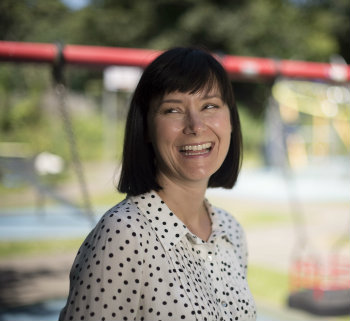
It was a relatively long process. It took me about a year.
After a few months of research, I launched a simple test product and got some traction while I was still at my previous job. That confirmed my initial hypothesis, and made me certain it was time for the change.
What didn't go well? What wrong turns did you take?
There's a a lot of talk on the market that you always need a co-founder or else you are doomed.
So, I tried to work with a few people, but to cut a long story short, it just didn't work out. We didn't share the same vision, ambitions or risks we were willing to take.
I could see that as time wasted, but it was actually a good learning experience. Now I know that I'm faster and much more efficient on my own (though probably also more tired!).
How did you handle your finances to make your shift possible?
I was able to rely on my savings, and I'm fortunate that my husband supports the business fully.
In fact, he's both the chief angel investor and the chief strategist. He too understands the challenges of childcare in and out.
What was the most difficult thing about changing?
Leaving behind a very successful career (into which I'd invested more than a decade of my life) wasn't easy.
I was good at it, and in that way it was a very comfortable place to be.
What help did you get?
It was actually my then employer (BCG) that helped me the most.
BCG are very supportive of their people. I was offered coaching sessions through various internal programmes, and they helped me discover my true passions, ambitions and goals.
After about a year of this process of discovery, I knew it was time to leave.
What resources would you recommend to others?
Talk to the people that know you well.
They will spot your eyes sparkling when talk about your true passions.
What have you learnt in the process?
As much as it is a cliché, trust your gut.
And also, the only way to learn, grow, and move forward is to try. (And fail.)
What would you advise others to do in the same situation?
Life is not long. The only right time to follow your dreams is now.
We caught up with Zarja recently to see how her shift was working out, a few years on. Here's what she's been up to, and the biggest lessons she's learned.
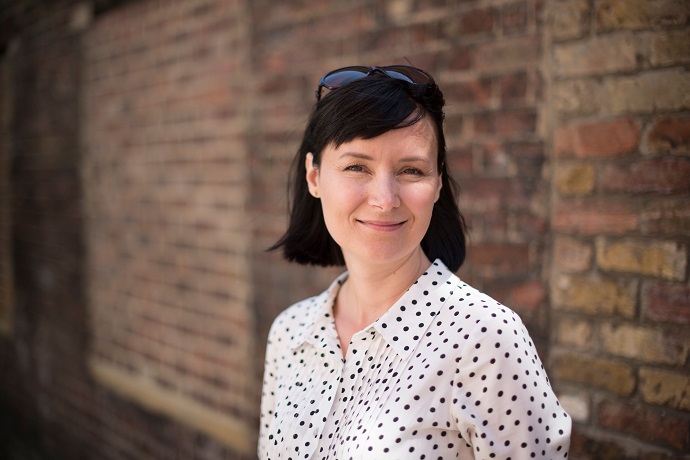
What's changed for you in your career since we first published your story?
The quick answer is: a lot!
We're proud to have got into the Techstars London programme (as one of ten companies chosen out of 1250 applicants). We've spent a crazy three months working with Techstars and their mentors who have provided a wealth of advice and support. It's been an amazing opportunity and experience that we'll be able to draw upon for a long time and as our business grows.
The last three months has seen us evolve into the parentcare champion. We talk a lot about childcare, and rightly so, but in the process we forget about parents. That's why – although we started out with childcare – we have new things in the pipeline that will make life simpler for parents and help them be the best they can be. We're also investing in our nannies.
So, watch this space!
How do you feel about your work now?
I love what I'm doing.
Building myTamarin is hard work, but it's also incredibly rewarding as we get to positively impact the lives of parents and nannies daily.
I'm still working 24/7 and wish I could clone myself at times. But I've started to build out the team and that's exciting. I can't do this on my own, and it's the team that's going to make the business a success.
We're still a small team, but we are quick and nimble. I love that we can test hypotheses and change direction fast. As a consultant at BCG, I was an advisor, but the company ultimately decided which of my recommendations to implement. At myTamarin, we're totally in charge of our own destiny.
What challenges have you come up against since making your shift?
Building and growing a team in a start-up is much harder than in an environment like BCG – an established brand, with top of the market salaries and a well-oiled recruitment machine.
To get people on board in a start-up environment (on much lower salaries) they need to buy into the vision and into me, the founder. So, I'm constantly selling – to investors, to employees and of course, to customers.
How is the financial side of things panning out, and is this what you'd expected?
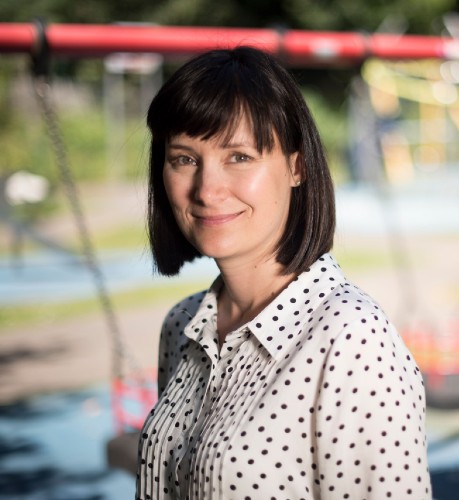
It's going really well.
We've been making money since day one, so combined with the Innovate UK grant we could bootstrap for the first 18 months.
As we prepare to scale up, we've recently raised our first round of investment, with UK- and US-based angels. And we'll soon be raising again to invest in our exciting initiatives around parentcare.
What have you learned, since making your shift?
Building a start-up is like parenting: it's the most rewarding job you ever do, but it's also the hardest job. And what's more, it's 24/7!
You need to be(come) very comfortable with failure, disappointment and imperfection. Because it's only through these that you can learn and improve. So, aim to fail frequently and quickly, or you won't be learning fast enough.
This should apply to any business, but the customer really is king. You need to know your customers intimately and constantly strive to exceed their needs and expectations.
Is there anything else you'd like to share?
Some people mistake a start-up for a small business. It's a big mistake.
Small businesses are comfortable – start-ups are not. And if they are, they're falling behind. Small businesses are stable and predictable – start-ups are exciting and often on a roller coaster. The biggest difference is the ambition and the force behind it – in a start-up you can feel that ambition literally driving you and the business forward.
To find out more about Zarja's business, visit www.mytamarin.com.
What lessons could you take from Zarja's story to use in your own career change? Let us know in the comments below.

